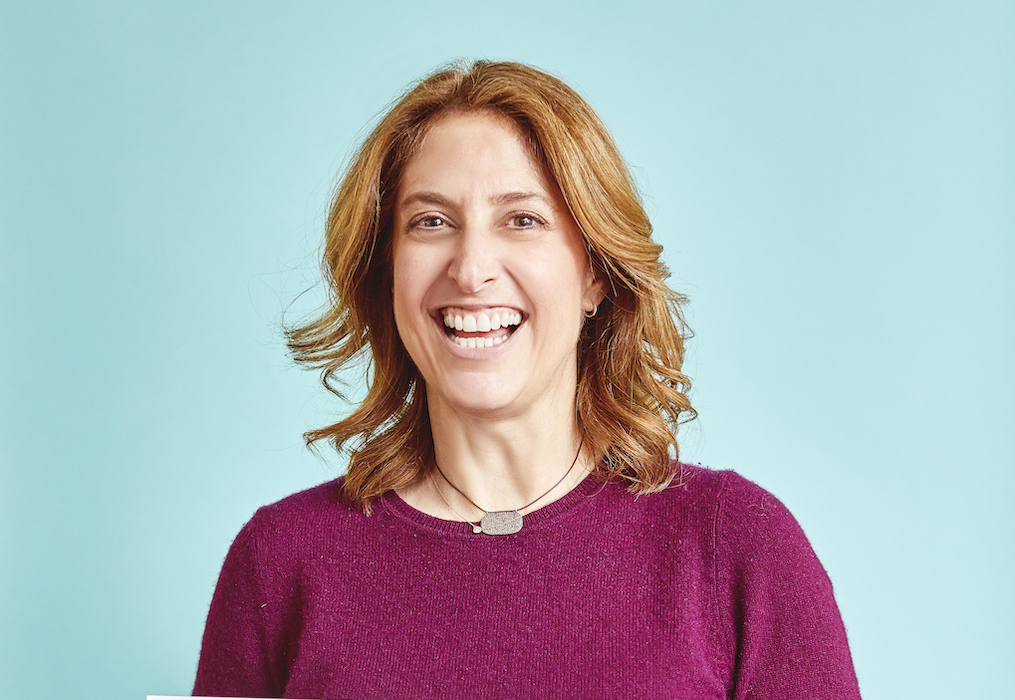Dr. Catherine Birndorf knows how to help postpartum women, and she is revolutionizing the way we treat mothers after birth. A reproductive psychiatrist who focuses on the postpartum stage of parenting, Dr. Catherine is also the co-founder and CEO of The Motherhood Center of New York, where she lives with her husband as well as her two daughters, Hannah and Phoebe.
Little Spoon met up with Dr. Catherine at TMC to chat about the new normals of motherhood. It’s easy to see why women flock to her. Dr. Catherine is a pioneer when it comes to birth and women’s body. Our conversation kept coming back to how weird it is to be both overwhelmed with sadness and incredible love all at the same time. “Anything I can do to help normalize the wide range of normal, of being a mother,” she says as a hello, “count me in.”
We’ve Been Sold a Bill of Goods
What could be more natural than having a baby? Well, according to Catherine, a lot. And we’re majorly relieved to hear this. “People generally think becoming a parent is going to be easy and natural,” she explains. “On TV or in the movies it looks like a breeze, but in reality the experience of being so out of control—to be in uncharted territory—it can cause so much despair, disbelief, and depression.”
Annnnnd then there is the whole “bonding with the baby” thing, which is supposed to be some glow-y magical moment of connection that happens seconds after the most painful hours of your life. But connection doesn’t always happen instantaneously. Mothers might not bond with their baby minutes, hours, or even weeks after birth. That’s normal! But so many moms have no idea.
“We have been sold a bill of goods, and as cliche as that sounds, we are all still buying it,” Dr. Catherine says about the elusive postpartum bliss her patients feel guilty for not experiencing. A major part of postpartum depression is feeling ashamed. When new moms feel shame, they isolate themselves. “Shame makes us feel defective and damaged. With no self esteem we end up feeling just despondent,” Catherine explains. “Shame is horrible. Shame is a scourge. It’s so unnecessary, but if we don’t talk about it, it lives within us. It’s erosive.”
It’s OK to Feel Love and Hate at the Same Time
Tiny babies are a lot of work. Any mom can tell you that. Throw in a partner who in some cases may not really get what you’re going through, like seventeen nights in a row with no sleep, plus the shock of feeling like these changes are permanent? Total recipe for disaster. As Dr. Catherine spends so much time working with new moms, she understands exactly how it’s possible for us to feel both complete-and-total-head-over-heels in love… and emotionally raw anger all at the same time.
“They are talking about their horrible nights and the fight with their partner and the fact that they wanted to throttle the baby,” she shares. “But everyone has those feelings, and they are normal for the most part. Generally speaking, it’s not unusual to have two diametrically opposed feelings at the same time. You can feel love and hate at once.” Repeat after me: this is normal, this will pass, this isn’t forever. The new mom mantra.
Asking for help can feel lonely or selfish. But Dr. Catherine’s solution to this situation is something that we hear over and over again: find a community. “Community seems to be key,” she says. “Women, particularly new moms, feel alone. So to have a place like The Motherhood Center, when women can come together to share how they feel… it’s no B.S., it’s direct, it’s straight up, and it’s raw.” Dr. Catherine says that when new moms don’t have to put on a happy face or talk through a filter they admit that their feelings are often paradoxes. “It can feel like you’re constantly asking yourself—am I supposed to be this or that? But it’s not either or, it’s both.” So you heard it here first mamas. Give yourselves license to feel all the feels.
How to Normalize Our Experiences
When Catherine noticed that the normalities of motherhood weren’t really understood or talked about, she set out to change that. Her patients were struggling, because the resources simply weren’t there. “I find, every day, in my office I hear myself say the same thing. So I thought, what can I do about that?” Dr. Birndorf shares. The solution? She co-created a book, What No One Tells You.
“The big idea is this: there’s a wide range of normal,” she explains. “There’s a teeny-tiny group of people who immediately experience pure bliss (I know about five), and then there’s about twenty percent of the population who truly struggle and have a serious illness, but the rest? That section is huge. And the book was written to delve deep into all those kinds of postpartum mothering, no matter where on the spectrum you fall…”
The number one thing we can do to help normalize the experiences in motherhood is talk about it. However, Dr. Catherine knows how difficult it can be to share how you’re feeling in those raw first months. “The problem is people don’t come forward, they don’t tell, they worry if they admit to feeling bad they will be seen as a bad mom. Or that if they do confess, that someone might take their kid away,” she explains. “It’s heartbreaking that a universal struggle isn’t normalized.”
Maybe easier said than done, but Dr. Catherine wants us to remember that these feelings are experienced by tons of mamas. “I always say to people it is so much fun doing this job because people get better. This type of depression is super, super treatable. If you aren’t functioning at your best, let’s treat it. Then the mom is going to feel better, the baby feels better, and generations to come can be well.”



